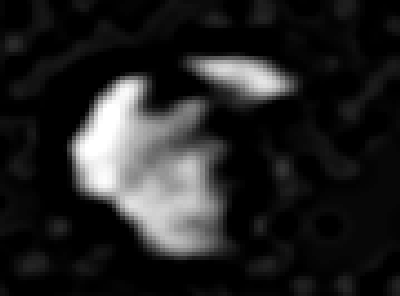Astronomy Picture of the Day
Discover the cosmos! Each day we feature a different image or photograph of our fascinating universe, along with a brief explanation written by a professional astronomer.
October 10, 1995

Dione's Lagrange Moon Helene
Credit:
NASA,
Voyager 2


